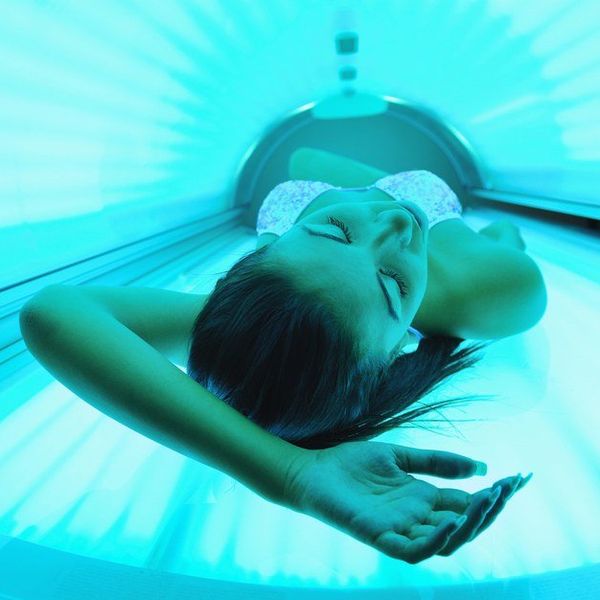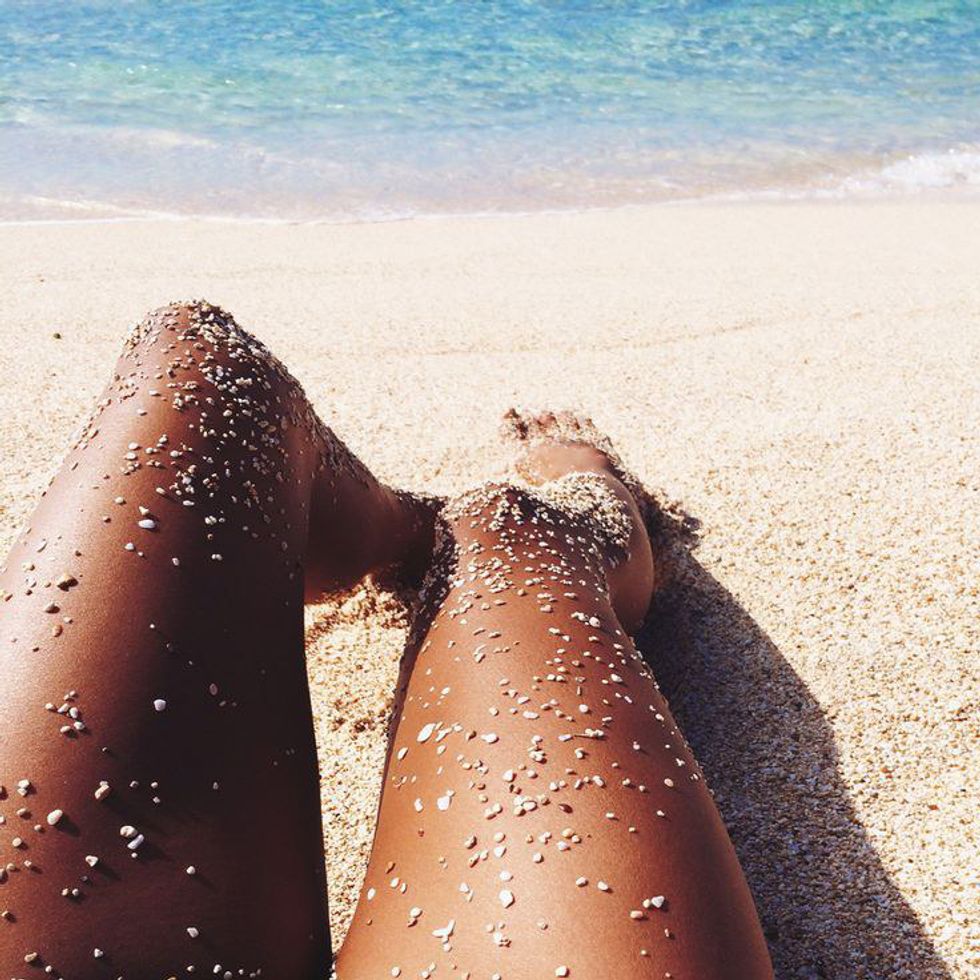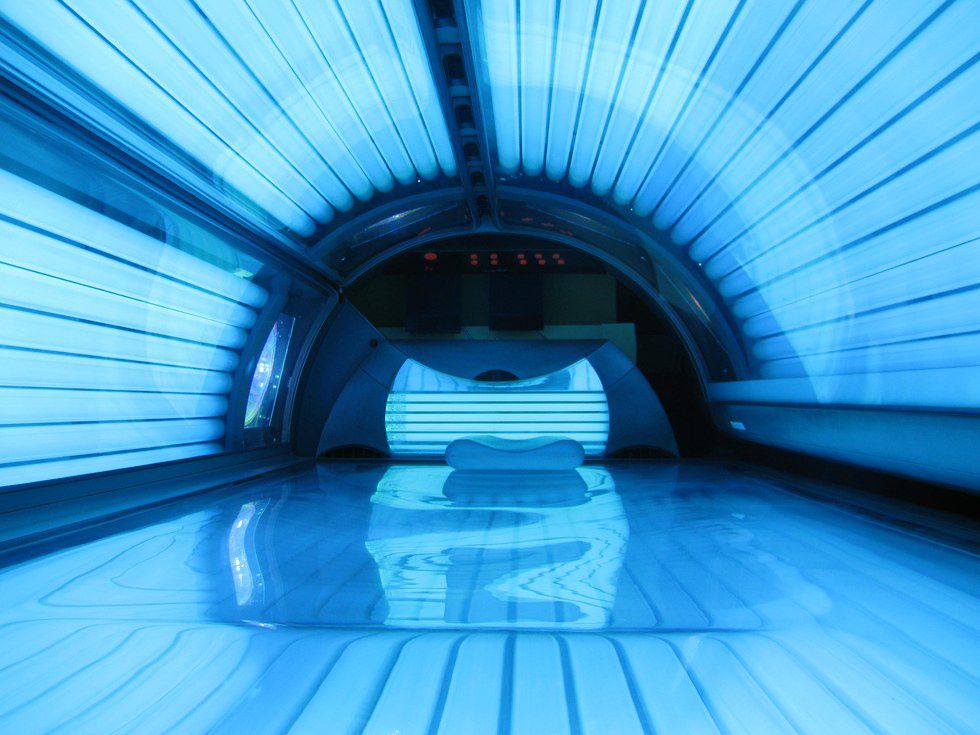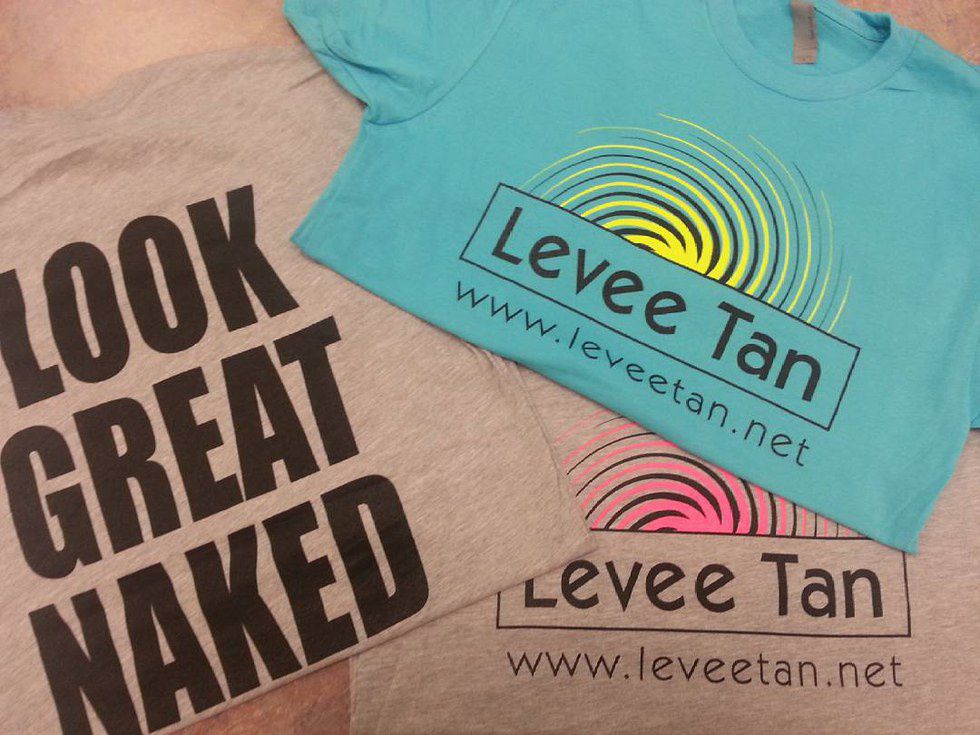There's always a lot of controversy surrounding the activity of tanning. "It causes skin cancer." "You'll look orange." "You're going to have wrinkles," and so on. Whatever the complaint may be, there are still a large amount of us who bask in the sun's mimicked rays year round.
I am, unsurprisingly, one of these individuals. "Why do I say 'unsurprisingly?,'" you might ask. Well, anyone who knows me understands by my year-round sun-kissed glow and overwhelming knowledge of tanning techniques, as well as tanning lotion, that I work in a tanning salon. Yes, this does make me a little biased on the topic, but it also makes me very knowledgable on the subject of receiving that bronze perfection that many young adults hold in high regard.
I've heard about every negative consequence associated with tanning, but I also know of all the many positive effects it can have on individuals.
The biggest concern I've heard about tanning is the increased risk of melanoma. Now, I'm not a scientist, but I have done my research.
My first dispute is the dreaded "75 percent" statistic that is thrown out to horrify all tanners. The World Health Organization reports that the “use of sun beds before the age of 35 is associated with a 75 percent increase in the risk of melanoma.” However, upon further research, one can see how this seemingly absurdly high number has been obtained. This number was actually deduced from a number of studies but the strongest evidence was obtained from a study that followed 100,000 women in an eight-year longitudinal study. Results from this study have been summarized as follows:
"[The] study 'found that less than three-tenths of 1 percent who tanned frequently developed melanoma while less than two-tenths of 1 percent who didn’t tan developed melanoma.' That’s actually about a 55 percent increase, but when the study was pooled with others, the average was a 75 percent increase. In other words, even if the risk of melanoma was 75 percent greater than two-tenths of 1 percent, rather than 55 percent greater, it would still be far below 1 percent."
The "75 percent dilemma" is actually a relative risk as opposed to an absolute risk. This means that although the absolute risk of getting melanoma is particularly rare, the relative risk of a tanner in comparison to a non-tanner is large. In summation, yes, it is true that if you tan your chances of getting cancer are higher than that of someone who does not. However, you still have an extremely rare chance of getting melanoma regardless of your tanning habits.
In fact, studies have proven that tanning is particularly great for instances like preventing yourself from burning when headed toward the equator for vacation. Burning causes damage to the DNA in your skin cells.
According to HealthGuidance.org:
"UV radiation penetrates the tissues of our skin and can damage (mutate) the DNA of our cells. Our bodies are usually very good at repairing any DNA damage, but lengthy and regular exposure to UV can cause more damage than the body can cope with. If mutations to the DNA are left unchecked, this may change the way in which the cells behave, and they can become cancerous."
That being said, they also mention that burning the skin cells makes damage repair much more difficult and thus makes the development of cancerous mutations more likely. This means it's very pertinent to avoid burning when in the sun. If you're headed to a sunnier place, getting a base tan will prevent you from burning. The brown pigment produced by the melanocytes in your skin will prevent the sun's rays form burning you.
The biggest thing to take away form this is that tanning, like many other vices, should be done in moderation. For those who use a sun bed, be it for skin care, burn prevention, or even cosmetically, it's important to do the research so that you understand how it will affect your skin type specifically. It's also important to talk to your dermatologist and salon technicians if you have any questions or concerns. Finally, don't forget to tan with some form of skin protection. Products like JWOW and Designer Skin brands harness great skin care; however, talking to your salon sales reps will better help you choose the lotion that's best for you (make sure you never buy lotion online either, because you never know what you're truly buying). Tanning year round is perfectly okay if you're responsible about it.
I love my salon. I love my tan. And I love to look great naked.
























